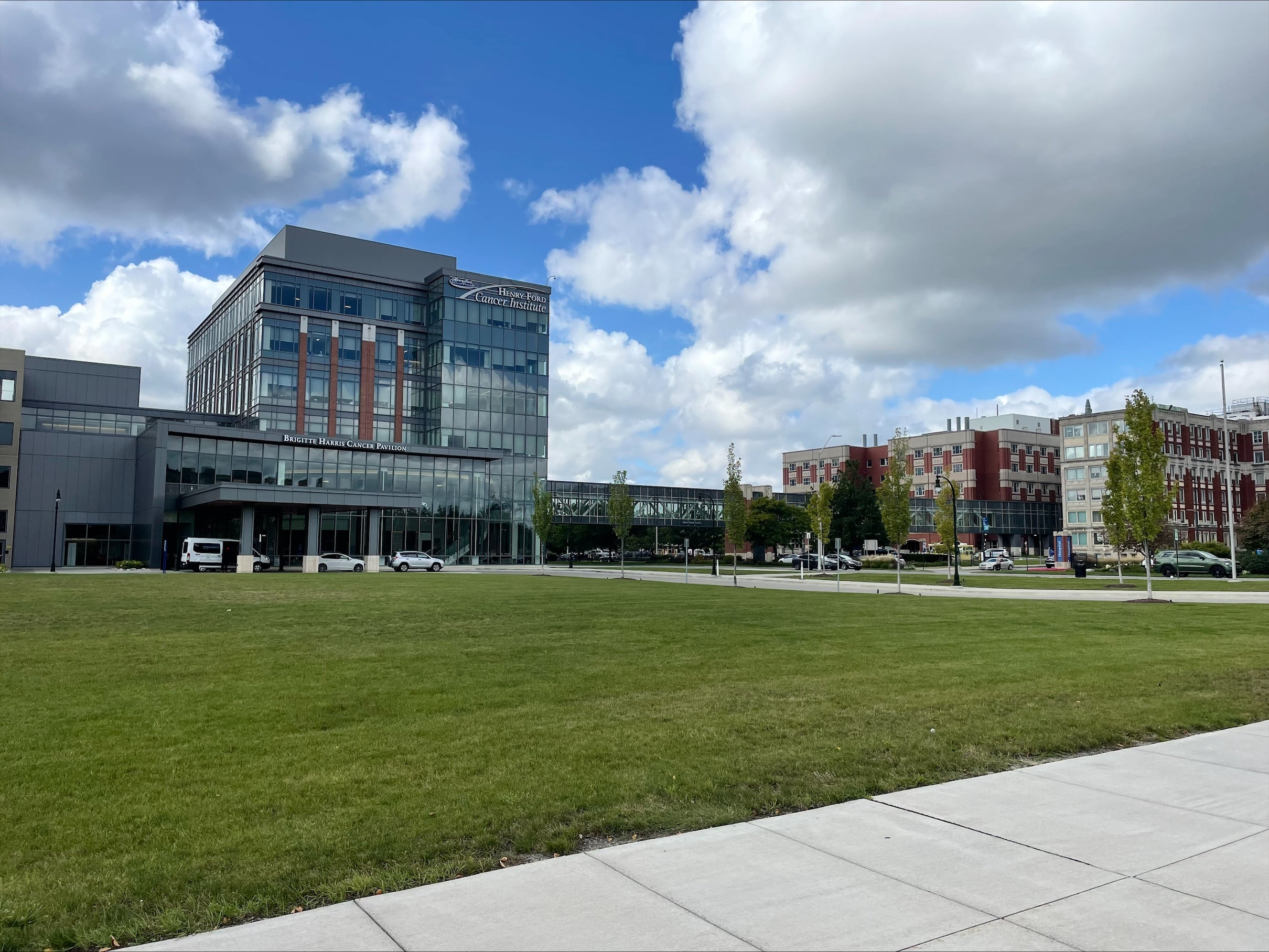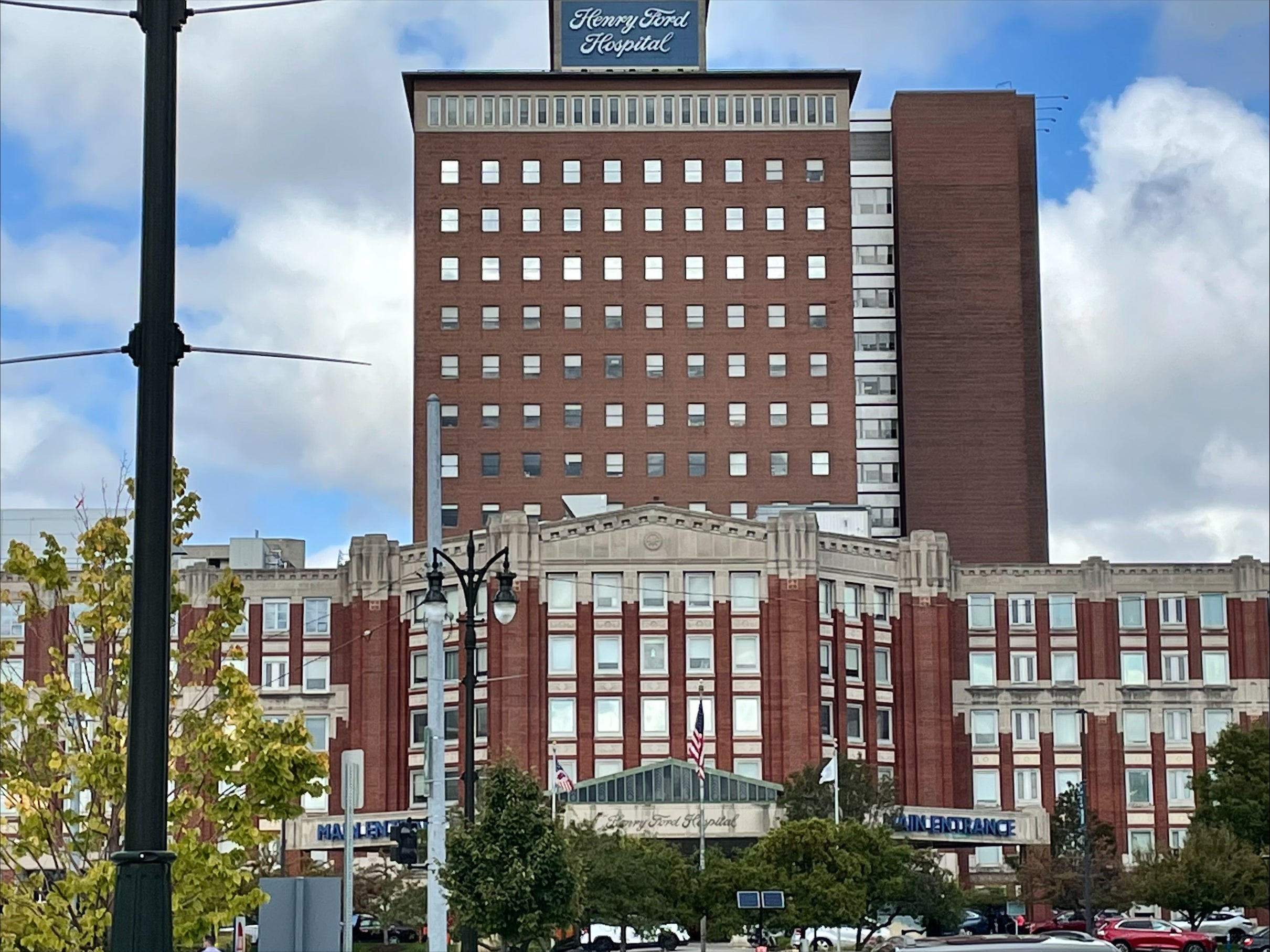Healthcare
Henry Ford Health: A Case Study on Positive Community Impact

THE PROJECT
In February 2023, Henry Ford Health, Michigan State University and Detroit Pistons owner Tom Gores announced a plan to invest $2.5 billion into Detroit’s New Center neighborhood through a joint venture, including a medical research center, hospital expansions, housing developments and public spaces.
The community development project aims to turn New Center into a "vibrant, walkable community with state-of-the-art residential, commercial, retail, recreational and health care components," officials said in a press release. The health system plans to tear down the Health Alliance Plan headquarters and construct a $1.8 billion hospital in Detroit's New Center area across the street from the existing Henry Ford Hospital, officials announced. The new facilities will feature all private patient rooms, an expanded emergency department, intensive care units and advanced operating suites.

THE CHALLENGE
Alongside efforts to build a new hospital campus that aims to become the “premier academic medical center and destination for the most advanced care, research and education,” the Henry Ford Health team has a goal to reduce their environmental impact and emissions at every opportunity. This is in alignment with The White House/HHS Health Sector Climate Pledge, a voluntary commitment to climate resilience and emissions reduction that includes cutting greenhouse gas emissions by 50 percent by 2030 and achieving net zero emissions by 2050.
Creating a climate resilience plan is a key factor for hospital systems working to create a positive impact on their communities; ensuring building materials do not go to landfill furthers this pursuit. Additionally, new hospitals can contribute to patient well-being by using healthy building materials and avoiding chemicals of concern.
Maintaining their commitment to reduce their emissions, the visionaries at Henry Ford Health took advantage of every opportunity to reuse or recycle building materials from the Health Alliance Plan headquarters demolition.
“We needed to take an integrated approach to design throughout this demo and new build,” said Kelly Wagner, design construction at Henry Ford Health. “We relied on the expertise of our partners to provide tangible ways for us to reduce our landfill waste and carbon impact.”

THE COMMITMENT
Henry Ford and Shaw Contract are aligned in their vision and intention to build world-class hospitals while reducing environmental impact and carbon emissions.
At the end of its useful life, Shaw Contract will reclaim and recycle EcoWorx®-backed carpet to make more EcoWorx carpet products at no cost. Since 2006, Shaw has reclaimed and recycled nearly 1 billion pounds of post-consumer carpet reducing landfill waste.
With about 42,000 pounds of Cradle to Cradle Certified® Silver EcoWorx carpet installed in the Health Alliance Plan building in 2016, Henry Ford took advantage of the opportunity to contribute to the circular economy and reduce their carbon impact during demolition of the building. They elected to utilize Shaw’s re[TURN]® Reclamation Program and by returning the carpet tile, the health system reduced the impact of their project by 15,000 pounds of CO2e, or the equivalent of the amount of carbon sequestered by eight acres of trees per year.
March 19, 2024
 By using our site you accept our terms of use and privacy policy.
By using our site you accept our terms of use and privacy policy.